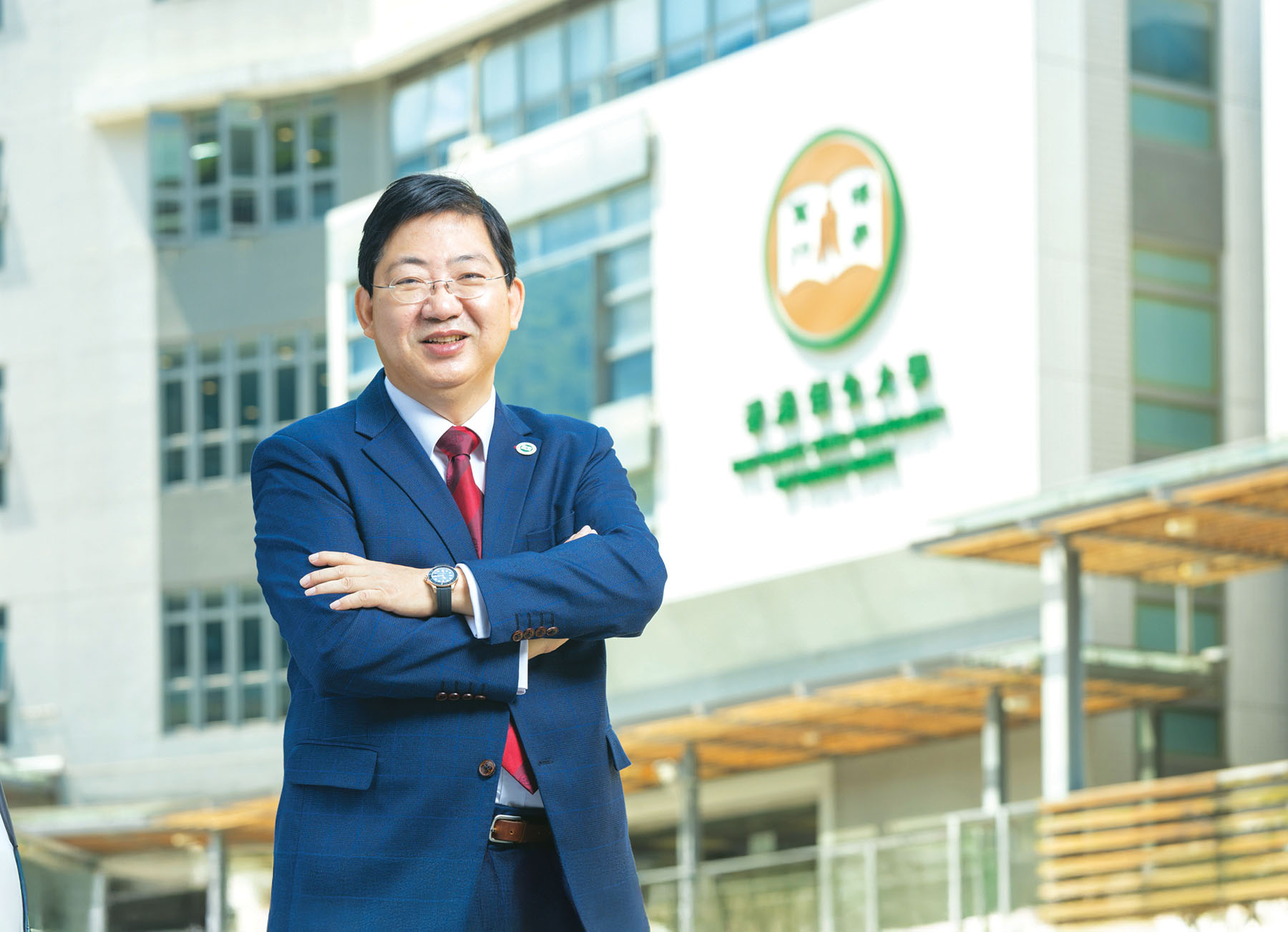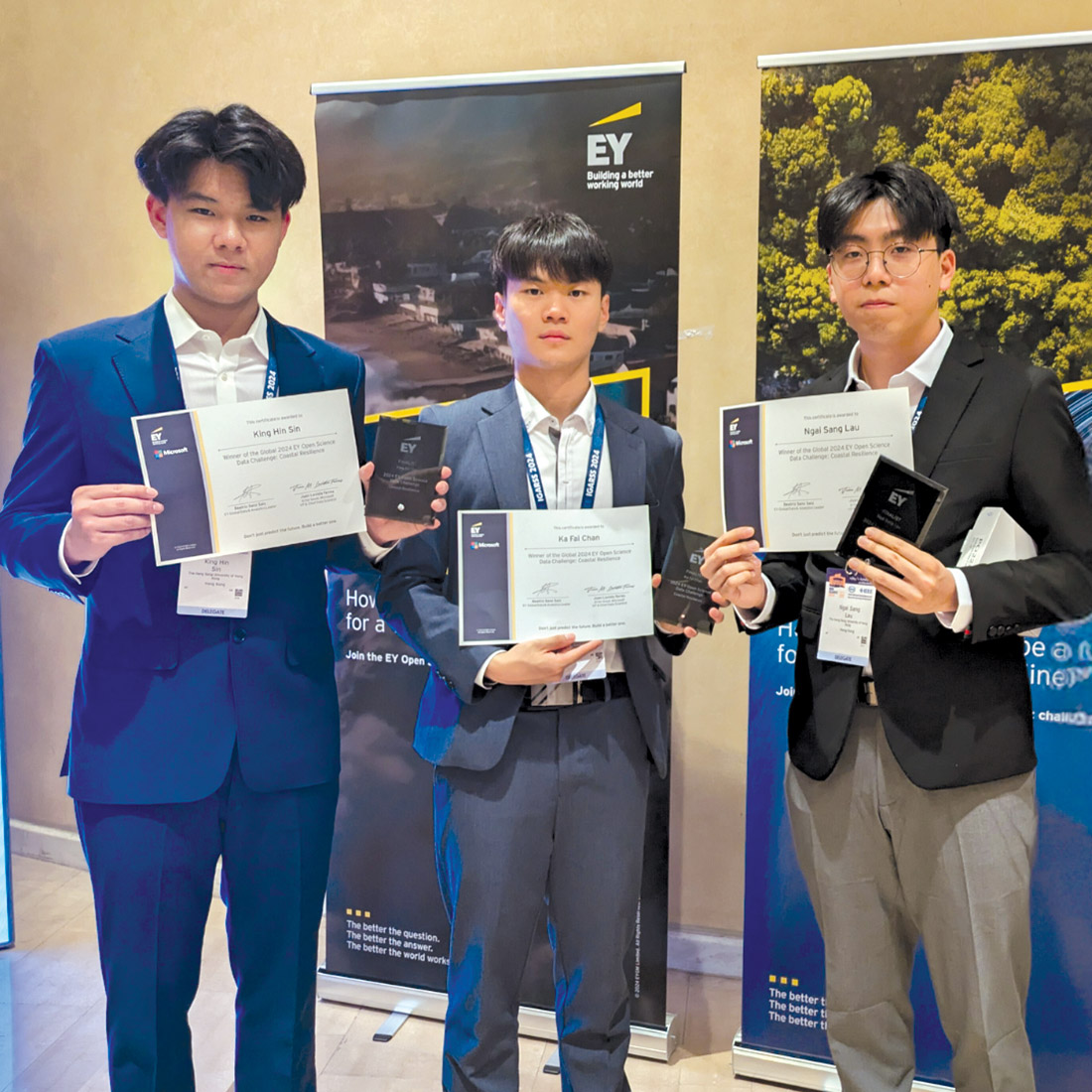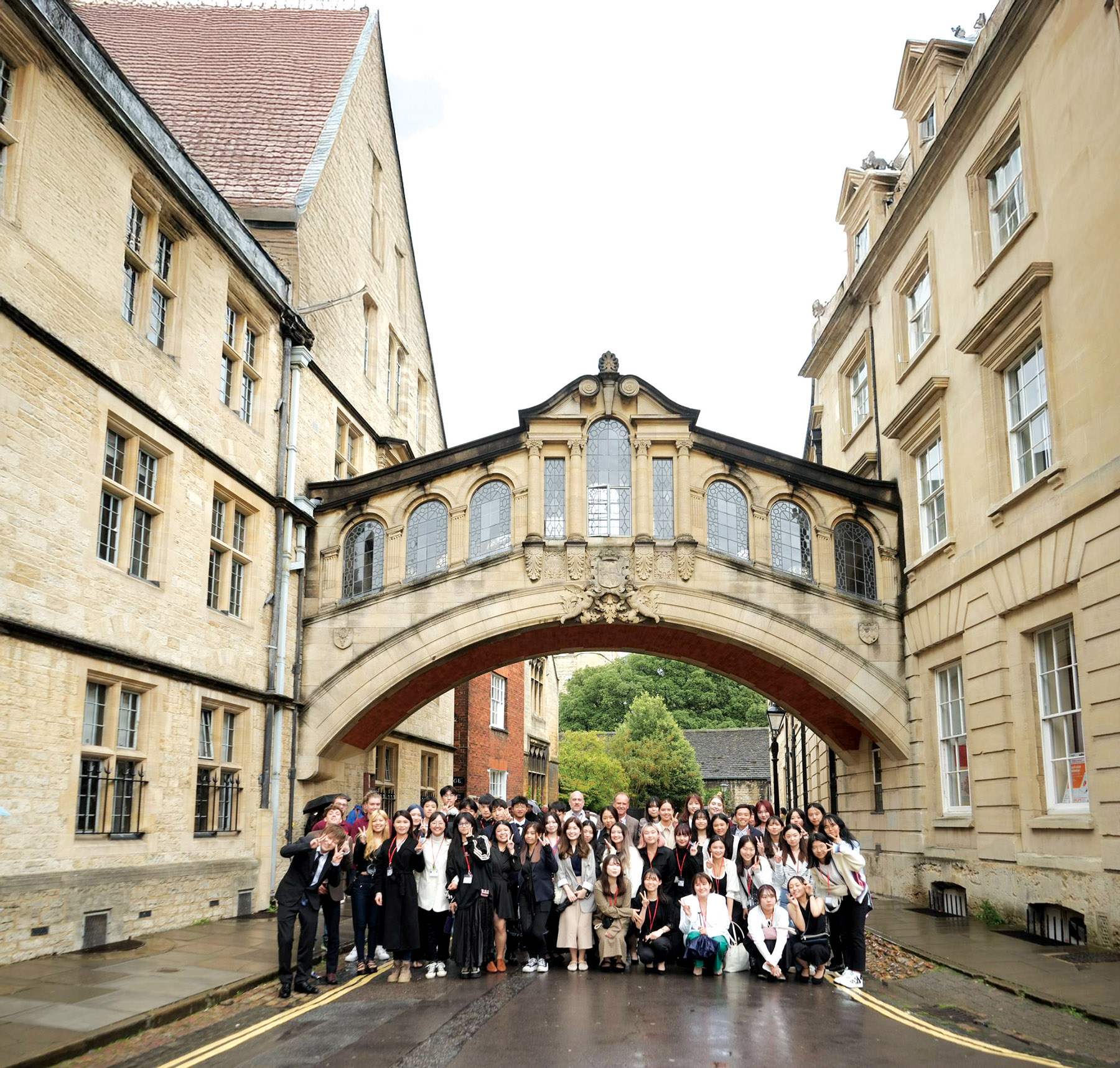HSUHK President Simon Ho Shun-man is leading the award-winning institution to embrace cutting-edge programs and international cooperation with the aim of equipping future generations for a dynamic world.

The President of the Hang Seng University of Hong Kong (HSUHK)— Hong Kong’s premier private university — has committed to keeping the university’s degree programs in tune with the times and enhancing interdisciplinary interactions, in a bid to shore up students’ competitiveness in an ever-changing world.
President Simon Ho Shun-man says he hopes that through a student-centered educational philosophy and its innovative programs, HSUHK can offer Hong Kong’s youth expanded educational choices beyond publicly funded universities, helping them become a new generation of socially conscious individuals.
The closing of 2024 saw the school reinforce its long-standing commitment to an inclusive culture and bolster its consistent efforts to provide innovative courses that bear fruit with outstanding academic performances and global recognition.
Celebrated reputation
In the latest rankings by the prominent global academic research portal Research.com, HSUHK distinguished itself among the top universities across the Chinese mainland, Hong Kong and Macao with impressive results: 21st in Business and Management, 24th in Social Sciences and Humanities, and 30th in Economics and Finance.
In addition to HSUHK’s academic accomplishments, students at the university have shone in Hong Kong and globally. In July, an HSUHK student team triumphed over 1,800 others from global institutions and business organizations to secure the world championship at the Ernst & Young Open Science Data Challenge 2024.
READ MORE: HSUHK to offer ChatGPT service for students from Sept
Other students have showcased their growth and diverse talents in competitions across Hong Kong and the mainland, securing first place at the 2024 National Cricket Championships held in Shanghai, and winning the Most Innovative Award at the Location Matters! Tech Challenge 2024, a sci-tech contest co-organized by the Hong Kong Science and Technology Parks Corp and Common Spatial Data Infrastructure and Geospatial Lab.
“With our consistent outstanding results, HSUHK has garnered increasing public acclaim,” says Ho. He believes that the university’s pristine reputation is evidenced by its steady enrollment, along with a rise in both applicant numbers and financial backing, which has also helped the university effectively navigate financial hurdles, a typical primary challenge for private institutions.
Ho believes that all these achievements are mainly a result of the
collective efforts of students and teachers, as they showcased the effectiveness of the university’s vibrant campus culture and educational principles.
He added that he greatly admires the campus culture that HSUHK has long cherished. With frequent interactions and mutual trust among students and teachers, HSUHK’s emphasis on small-class teaching and a unique Residential Colleges system has cultivated close relationships between teachers and students, as well as among the students themselves. This environment promotes a culture of mutual exchange, support, and collaborative learning on campus.

Innovative course offerings
Another key factor leading to HSUHK’s current achievements is its innovative programs, which are based on societal needs.
As a privately funded institution independent of public capital and operational funding support, the university enjoys greater autonomy in teaching and administration, allowing for the continuous development of non-mainstream programs and initiatives, says Ho.
In the 2024-25 academic year, the university unveiled a new undergraduate program— the Bachelor of Arts (Honours) in Arts and Culture Communication. It also plans to launch its inaugural professional doctorate program in the area of decision analytics in the 2026-27 academic year, which will feature a wide range of courses on artificial intelligence and big data.
Furthermore, undergraduate programs such as film, animation design, and sports psychology and management, which are popular among young individuals and address strong societal needs, have the potential for major development in future program offerings.
Ho adds that the university’s sixth school — the School of Transdisciplinary Studies — has been approved and will tentatively begin enrolling students in 2026, offering programs that draw upon knowledge from the existing five schools while also delving into new integrated fields. Recognizing the limitations of single-discipline approaches in tackling contemporary societal challenges, the new school aims to break down disciplinary barriers and leverage the strengths of diverse disciplines to furnish students with a critical and innovative perspective.
“For instance, in today’s society, the film production process entails a blend of artistic, literary, and communication expertise, alongside insights from marketing, business management, and even translation studies,” Ho says. He stresses that the university will stay attuned to global shifts and societal demands, actively championing the advancement of new disciplines based on its own strengths and priorities.
Renewing the university’s pledge to continue evolving its programs, Ho is also appealing to the government to grant private universities more freedom, reduce complications and restrictions on the approval of new programs, and expand enrollment quotas for mainland students to ease the intense competition for admissions.
Ho notes that while public universities have self-accreditation privileges, private universities face extensive validation procedures by the statutory authorities when proposing new programs, especially those beyond the previously approved scope. Noting that such a process can span up to two years, Ho finds that the institution needs to allocate significant resources for such accreditation preparation, even after achieving official university status in 2018.
Established in 1980 as the Hang Seng School of Commerce, the institution was restructured as the Hang Seng Management College in 2010. Having taken the helm in 2014, Ho oversaw the university’s renaming to the Hang Seng University of Hong Kong in 2018, making it Hong Kong’s second private university.

Growing exchanges
While working diligently to enhance its own capabilities, the university also actively pursues external exchanges and broadens local, regional and global collaborations.
In Hong Kong, the university has secured a floor in the West Kowloon M+ Tower as its inaugural off-campus town center. This centrally located space, which is also near the city’s high-speed rail station, not only facilitates easier access for mainland-based and part-time students, but also connects with the local community and enables the public to engage with university activities without needing to travel to its main Sha Tin campus in the New Territories.
Within the Guangdong-Hong Kong-Macao Greater Bay Area, HSUHK is also forging stronger ties with regional institutions. Recently, management teams from HSUHK and the Shenzhen University of Advanced Technology engaged in reciprocal visits to explore possible collaboration. Earlier through memorandums of understanding, HSUHK and Jinan University, and Guangdong University of Finance and Economics respectively cemented concrete and feasible cooperation plans, mirroring collaborations with various organizations across the GBA.
Ho believes that the collaborations with the two institutions are highly robust, as HSUHK is a liberal arts university while the other partner institutions are renowned for their technological expertise.
HSUHK and the two institutions will exchange teachers, as well as allow students to participate in exchange programs at each other’s campus. Additionally, they will establish a joint platform to facilitate academic research and student entrepreneurship.
On a global scale, the university is set to enhance its impact, with a specific emphasis on the Association of Southeast Asian Nations members. Ho says that HSUHK has established scholarships in every ASEAN nation to assist outstanding students studying in Hong Kong. Moreover, it also actively collaborates with their Consulate-General offices in Hong Kong and Hong Kong Economic and Trade Offices in these regions to identify additional scholarship sources for ASEAN students.
ALSO READ: HSUHK nurtures professionals with moral values and social responsibilities
To foster closer ties between Hong Kong and ASEAN nations, the university’s School of Translation and Foreign Languages is actively recruiting more language instructors from this region. Ho is also encouraging Hong Kong students interested in the region to explore more opportunities within ASEAN.
In late August, Ho issued a heartfelt welcome message to students as the new academic year began. He urged students to develop a spectrum of essential qualities, which he encapsulated into the “5Cs” — critical thinking, creativity, communication and collaboration, caring, and continuous active learning. Ho said the university provides a learning environment that nurtures students with these versatile skills that will guide them through a swiftly evolving world, regardless of their chosen life paths.
He hopes that, throughout their four-year journeys, HSUHK students will mature into young leaders and conscientious global residents, who prioritize regional and global progress with broadened perspectives.
“Simply securing good employment is inadequate. The world needs a cohort of capable individuals to propel society forward,” Ho says, expressing his desire for HSUHK’s students to embody the qualities and roles of future sustainability leaders.


